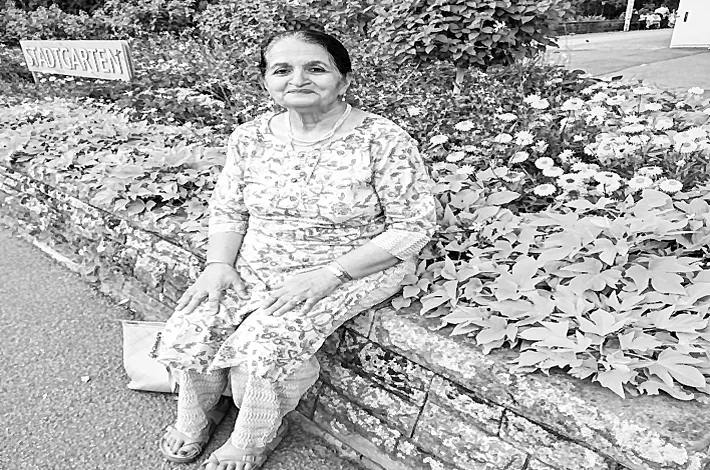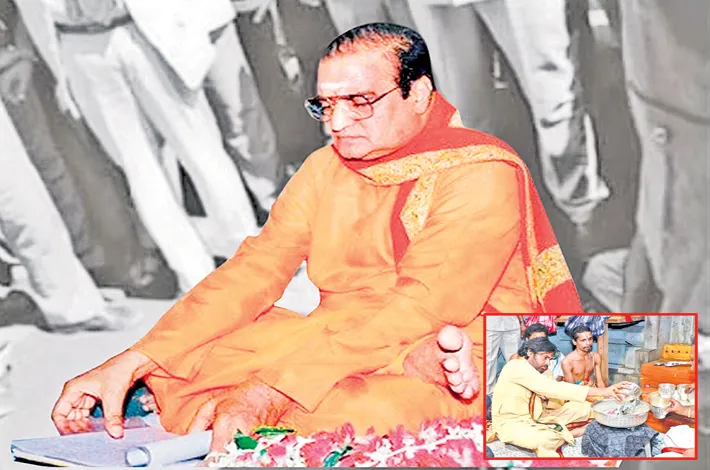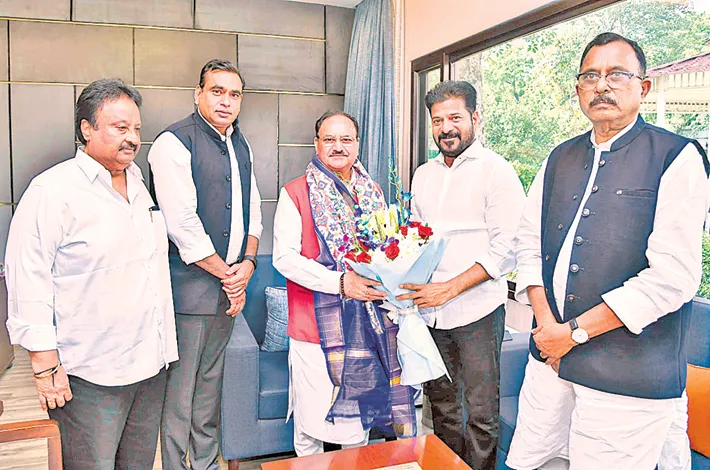Delhi State Elections are the most confusing the city has ever seen
25-01-2025 12:00:00 AM

With the list of freebies getting longer by the day, as each party comes up with a new scheme, the question remains who will foot the bill?
The three-party-dominated election in Delhi has descended into a burlesque, with each of the three parties, the BJP, the Congress and AAP, vying with each other to attract different categories of voters with a list of freebies.
Going by the list of incentives, women alone will end up receiving an annual cash stipend of over Rs 30,000 per annum, plus free medical care, free travel, subsidised gas cylinders, free housing, and free education for their children. In addition, the BJP has promised pregnant women a stipend of Rs 21,000 plus medical kits.
The Congress has promised unemployed youth a stipend of Rs 3500 per month, while AAP will dole out Rs 18,000 per month to pujaris and granthis. The avalanche of freebies does not seem to stop.
Not satisfied with providing subsidised water and electricity in the capital, AAP is now promising that tenants will be allowed to install separate water and electricity metres in their rented premises in order to avail themselves of these free facilities. The latest promise has frightened landlords because once an electricity or water metre is installed by a tenant, he or she can make an ownership claim on the residence, as has happened all too often in the past.
The average Delhiite is wondering just who is going to foot the bill for all this extravaganza. In the last ten years, Delhi’s subsidy bill in water, electricity and travel has gone up by 600 percent. This is excluding the massive expenditure being incurred on providing free education, health and other social schemes.
Political observers believe it is time the Election Commission of India intervened and hauled up political parties to curb such reckless electoral promises. Others believe a team of economists should be allowed to grill the leaders of each party and ask them how exactly they plan to roll out such massive schemes, each of which will easily cost the exchequer crores of rupees.
Despite the carpet bombing of promises, the voter remains in a state of suspended disbelief, not knowing whom they should vote for, considering that a large number of contestants have specialised in “dal-badal” politics, having moved from one party to another with impunity. Political parties do not seem to be asking these candidates any tough questions, nor is the public.
Take the example of the Patel Nagar constituency. to which I belong. Till some months ago, the BJP candidate, Raaj Kumar Anand, was in Arvind Kejriwal’s cabinet as Minister of Social Welfare. Following a 24-hour ED raid in June 2024, he moved from AAP to the BJP, which has offered him a ticket to contest from here.
The Congress has given a ticket to Krishna Tirath, who is a spent bullet and has not put up a single poster so far. She may have been a minister in the Manmohan Singh government, but that did not stop her from contesting the Delhi elections in 2015 on a BJP ticket. The AAP candidate from this constituency, Pravesh Ratan, fought on a BJP ticket in 2020 but is now hoisting the Kejriwal flag.
Or take the case of the former Delhi Congress chief Arvinder Singh Lovely, who switched to the BJP and is now fighting from the Gandhi Nagar constituency, while long-time Congress leader Rajkumar Chauhan switched parties and joined the BJP.
Finding he was not making much headway with the saffron lot, he returned to the Congress only to do another somersault and rejoined the BJP after he was promised an assembly ticket from Mongolpuri. Colonel Devinder Sehrawat had been with the BJP and Shiv Sena before contesting and winning an assembly seat on an AAP ticket. He is now with the Congress contesting from Bijwasan, which is a rural seat.
The Muslim candidates, Asim Ahmed Khan and Abdul Rehman, have moved from AAP to the Congress, upset with Kejriwal for not supporting the Muslim community during the Shaheen Bagh agitation. Chaudhary Zubair Ahmed, earlier with the Congress, has moved to AAP to contest from Muslim dominated Seelampur assembly constituency.
From a 70-member assembly, AAP has given tickets to 22 candidates who have served time in either the Congress or the BJP. Congress has given nine and the BJP ten tickets to “dal-badal” candidates. The voters may be confused with all these goings-on but they are keeping quiet, waiting to see what other benefits will come their way.
What signal does this handing out of so much largesse send out to the rest of India? The answer is not difficult to find. Delhi is bursting at its seams with thousands of poor migrants pouring into the city on a daily basis. From being a garden city, it is ending up being one large slum.
Following AAP’s mid-December assurance of providing financial assistance of Rs 2100 to every woman and free medical care to all senior citizens, over 5.1 lakh people filled out the Form-6 to be allowed to vote. These applications were made to the Election Commission after December 15, 2024. The election officials rejected nearly 4.2 lakh applications, citing discrepancies.
Delhi has seen the highest growth of voters than any other city in the country. Most of this growth has been in the periphery of the city at the cost of agricultural land and, more often than not, at the cost of forests and other vegetation. It is these peripheral areas that host the poorest populations and are being targeted by our political parties.
This is also probably one of the dirtiest elections being witnessed by Delhiites, with all sides hurling allegations and counter-allegations against each other. The Congress, in turn, is accusing AAP of siphoning off Rs 382 crore in a health infrastructure scam, pointing out 14 CAG reports that had indicted them on key issues, including their liquor policy, vehicular pollution and the performance of different government departments.
A few days earlier, they were indicted on a housing scam related to 50,000 flats built for various JJ clusters a decade ago but remain undistributed because both the BJP and AAP are squabbling over who should take credit for their construction. The irony is that work on these flats started during Sheila Dixit’s tenure as chief minister.
The latest C-Voter survey, released on Wednesday, throws up some interesting details. The BJP seems to have made huge inroads with the male voter, many of whom have expressed willingness to switch sides from AAP and vote saffron.
But the women voters, by and large, continue to remain loyal to AAP and will vote in their favour. In this three-cornered fight, the BJP is definitely going to increase their vote share and could well end up forming the government, though in the case of a hung assembly, the Congress may end up having the last laugh.








